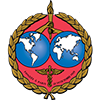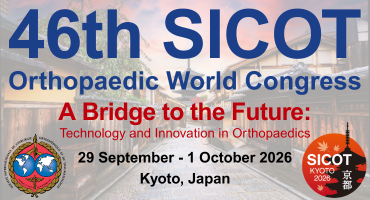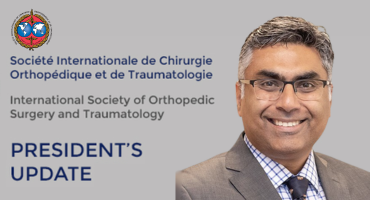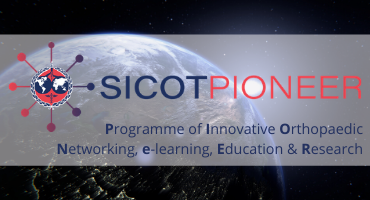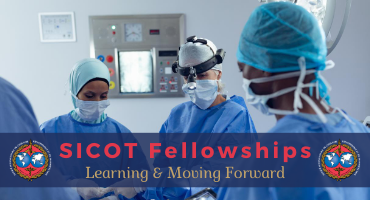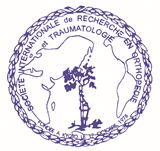 SIROT - Société Internationale de Recherche en Orthopédie et Traumatologie
SIROT - Société Internationale de Recherche en Orthopédie et Traumatologie
(International Research Society of Orthopaedic Surgery and Traumatology)
A Brief History
by Dr Wayne H. Akeson
SIROT had its beginnings prior to the SICOT meeting in Kyoto in 1978. A few members of SICOT including Dr Robert D. Ray and Dr Marshal Urist from the United States, Dr Göran C.H. Bauer of Sweden, and Prof Yutaka Shimomura from Japan engaged in discussions about the importance of developing a research society affiliated with SICOT. These discussions were led by Dr Ray who was named the SIROT Founding President. At the time of the first formal meeting of SIROT in Kyoto, Dr Urist was named its second President covering the years 1978 through 1981.
The founding members developed a Constitution governing the Society along with an itemised list of purposes. The founding purposes were as follows:
To encourage research related to orthopaedic surgery.
To provide a forum for the exchange of technical, scientific and practical information relating to research in orthopaedic surgery and allied disciplines.
To provide a forum for the presentation of recent advances in orthopaedic research to the practicing orthopaedic surgeon.
To give practical assistance to any individual engaged in orthopaedic research.
To act in a consultative capacity on the request of individuals, organizations or bodies in relation to orthopaedic research.
These goals remained in force since the initial meeting with the exception of a single amendment made during the business meeting at the SIROT annual meeting in Sydney in 1999. At that time the following amendment was proposed and approved:
- In conducting aims 1-5, special consideration will be given to the research and educational needs of developing nations.
The dates of SIROT meetings have been scheduled to occur two days prior to the regularly scheduled triennial meetings of SICOT. In addition, a half-day overlap combining SIROT and SICOT has also been regularly scheduled for the purpose of introductions, presidential addresses, and the awarding of prizes by both societies. The subsequent regularly scheduled triennial meetings of the two societies included those held in Buenos Aires 1981, London 1984, Munich 1987, Montreal 1990, Seoul 1993, Amsterdam 1996, Sydney 1999, and San Diego 2002. During those years SIROT has enjoyed a close relationship with SICOT that has permitted joint programme development in such areas as the Research Commission. This Commission was sponsored by SICOT, with important collaboration with SIROT. It was led in the beginning by Dr Eric Radin and then by Prof Charles Rivard. The goal of the Research Commission has been to summarise progress in research in certain areas of study for the edification of the general membership of both organisations.
Another important programme in which SIROT has had a role was developed with the cooperation of Prof Shimomura through his SORFI foundation sponsorship of travelling research fellowships. Prof Shimomura has permitted SIROT to participate in the advertisement and recommendation of awardees of traveling fellowships offered by that foundation. This collaboration has been especially rewarding through the matching of the goals of the foundation and the goals of SIROT.
It was the consensus of both societies that the triennial format, while successful in many ways, created unavoidable inefficiencies in programme development and certain problems with membership continuity. For this reason SIROT experimented with Inter-Meetings in Lund 1991, Brussels 1992, Boston 1994, Haifa 1997, Shanghai/Beijing 2000. Beginning in Paris 2001, the two Societies joined forces in establishing regular joint annual meetings. These meetings were termed International Meetings of the two societies. While more limited in scope, they provided for the establishment of continuity year over year in programme development and aided better achievement of the general purposes of the two Societies. After the Paris International Meeting, these International Meetings were held in Cairo 2003, in Havana 2004, in Buenos Aires 2006, and in Marrakech 2007.
In many ways the goals of SIROT presently exceed its grasp because of obvious financial constraints. At the same time, SIROT offers unique advantages for the co-mingling of research teams from developed and developing countries in a constructive and encouraging way. This venue is provided for young investigators from far-flung geographic sites to present their research to a discrimination audience from whom suggestions and supporting critiques are regularly offered. Informal discussions between parties with common interests provide some of the most productive aspects of the meetings.
